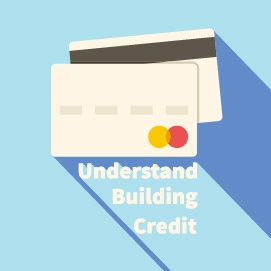 Credit is an essential part of the economy. Without credit, lenders would have no scale by which to create lending standards and determine who should receive credit and who should not. You need good credit to buy a car, get a high credit line amount credit card, and sometimes even to qualify for employment. When it comes to home buying it is no wonder why your lender is going to be concerned with your credit.
Credit is an essential part of the economy. Without credit, lenders would have no scale by which to create lending standards and determine who should receive credit and who should not. You need good credit to buy a car, get a high credit line amount credit card, and sometimes even to qualify for employment. When it comes to home buying it is no wonder why your lender is going to be concerned with your credit.Many first-time homebuyers, don’t have a lot of credit established, don’t fully understand how credit impacts the loan approval, or both. There are many factors found on your credit report that help create your credit score, though some are weighted more heavily than others. Two of those factors which weigh heavily into the equation are payment history and amount of debt.
While the percentages may vary slightly depending on your overall report, nothing is as important as your payment history. Your payment history is comprised of just that: your history of payments on all accounts. It includes information on whether your payments were on time, late or missed. It also includes information on the amount that you paid, whether it was the entire balance, the minimum or less than the minimum. If you have not paid on time and at least the minimum due on your accounts, it will have a negative impact on your score. So, while you may not remember the time you maxed out your credit cards for that Vegas trip and spaced out on your car payment while you were there… your credit report will remember.
The second biggest factor is the amount of debt you currently have. Lenders use a debt-to-income ratio (DTI) which is calculated into a percentage that helps them determine if they should extend credit to you. The more debt you have, the more negatively it will impact your score. Debt includes mortgage loans, credit card payments, car loans, student loan debt, child support and alimony – anything that would present itself on a credit report. Things that you pay monthly but should not be confused with debts: Your gym membership, your Netflix account dues, magazine subscriptions, etc.
Establishing good credit is important to anyone looking to purchase a home. While our mortgage bankers are not credit counselors, they can give you an idea of where your credit needs to be to obtain approval for a mortgage—find one near you by clicking the button below. For more information on being a first time home buyer, click here!

